Words Amicia de Moubray Photographs Martina Hatchwell, Sarah Cuttle, Christopher Lewis, Scott Ramsay (c) WCS, Matthew Hatchwell
Interviewing Matthew Hatchwell is to open a window into an illustrious career in wildlife conservation that has taken him all over the world from the Congo to Patagonia.
‘I have a passion for what I do. It doesn’t feel like work,’ Matthew tells me.
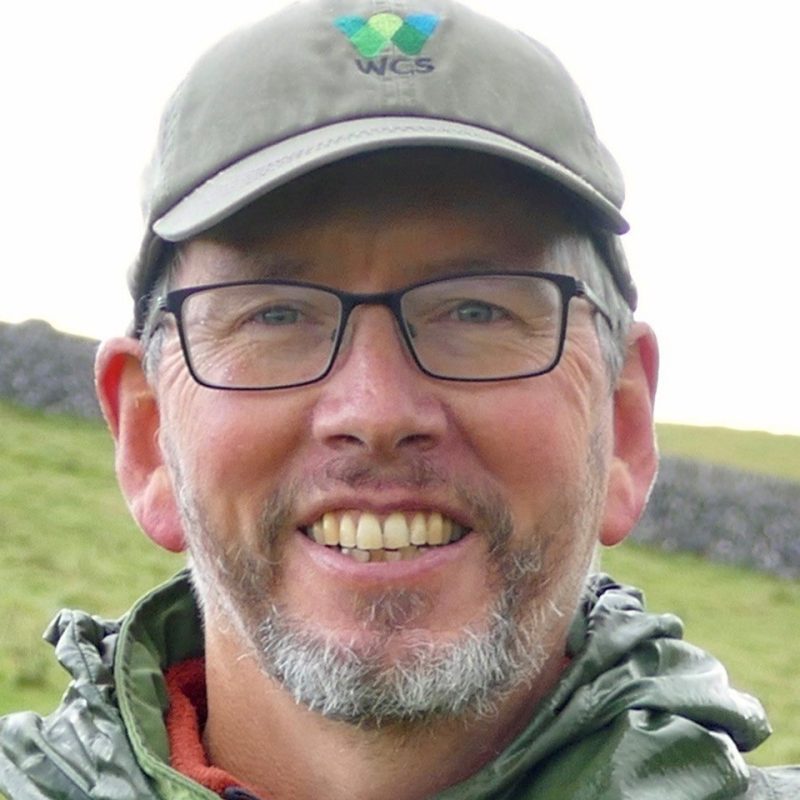
Matthew Hatchwell
But it wasn’t always thus. After reading French and German at Exeter University, he worked for a rare book auctioneer in New York (emulating his father’s profession – an antiquarian bookdealer), followed by a two and a half year stint at the renowned antiquarian book dealers Bernard Quaritch in London.
‘I knew on day one that it wasn’t what I wanted to do as I just didn’t have the passion and photographic memory of my father. I realised that I had to change course but had no idea what to do next.’
Wisely, Matthew booked a consultation with a careers advisory specialist in New York. Astonishingly emerging after just 20 minutes, he knew he should work in wildlife conservation.
Growing up in Wiltshire, he and his siblings had what sounds an idyllic childhood, swimming in rivers, climbing trees and fishing. ‘Our parents had an Air Raid Warden’s bell which they would ring when it was time to come in.’ Subliminally, the young Matthew must have nurtured his love of animals and landscape. ‘My brother always loved birds. He is now a Professor of Zoology.’ The family would go on holiday to France. ‘This was when I became fascinated by limestone landscapes in particular. But it never occurred to me that I could make a profession working with animals and landscapes.’
In 1986 Matthew began fundraising for the New York Zoological Society now the Wildlife Conservation Society (WCS) based in the Bronx. The job required writing very detailed funding proposals for trusts such as the MacArthur Foundation and Pew trusts. This proved a marvellous way of learning as he had to work very closely with the people engaged in field studies taking him to countries such as Patagonia, Venezuela, Belize and West Africa.
In 1991, he was sent by the WCS to the Congo to support the government in setting up the Nouabale-Ndoki National Park in an area of tropical rainforest. His language degree played a part in his being chosen being a French speaker.
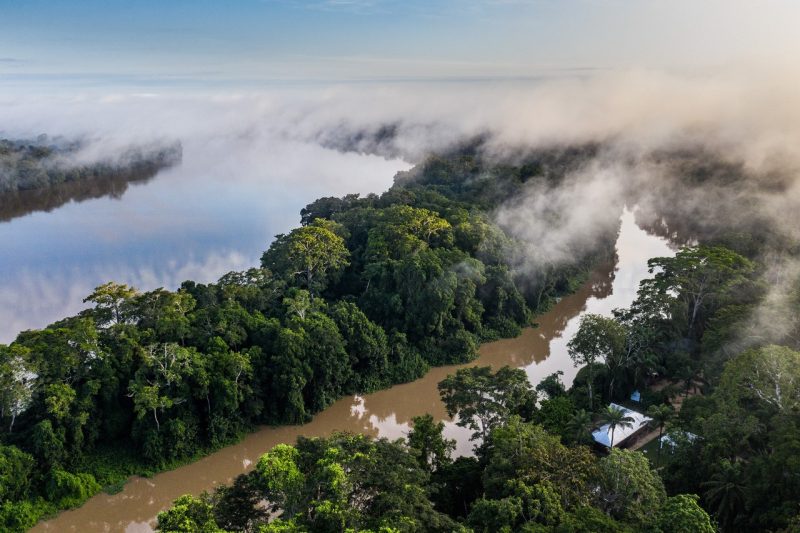
Nouabale-Ndoli National Park, Republic of Congo
In our internet age, it is salutary to remember what it was like working in Central African Republic in those far off distant days. ‘It was very hard to get a phone line, let alone make a fax machine work. Our base camp was a 120-kilometre journey by dugout canoe from the nearest town in a very remote area on the border of Cameroon and the Central African republic.’ The area was home to bongo antelope, lowland gorillas, Red Ruffed lamas and ‘naïve’ chimpanzees who had never had any contact with humans.
Matthew spent five years in Congo where he met his wife, Martina where she was doing a Master’s on Primate Behaviour.
Next, they moved to Madagascar, where he led the WCS team supporting the creation of the Masoala National Park. Amongst the myriad challenges he faced were the illegal trade in quartz in part of the area designated for the new park and the illegal logging of rosewood ultimately destined for China to be made into furniture. ‘It was very political and very difficult,’ he says, adding: ‘We were in just in time.’
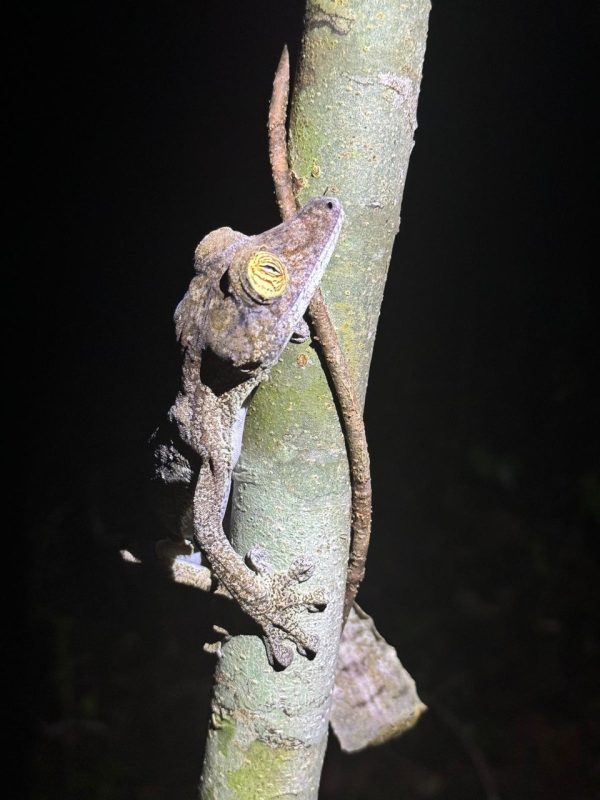
Leaf-tailed gecko in Masoala National Park, Madagascar
By this point, Matthew and Martina had two children and had set up a nursery school in their house. But it had become apparent that their son Alexander, had learning difficulties which necessitated enrolling him in a specialist school in Europe.
Happily, after discussions with the WCS, Matthew was appointed the first ever chief executive for WCS Europe, opening an office based at London Zoo. ‘London was chosen, as the UK has a long history of intellectual leadership in the field of wildlife ‘conservation.’ Matthew cites DICE, the Durrell Institute of Conservation and Ecology at the University of Kent – as an example.
The family moved to Kent for a special needs schools for Alexander, settling in Faversham. Many readers will know Matthew as Chair of the Westbrook and Stonebridge Pond
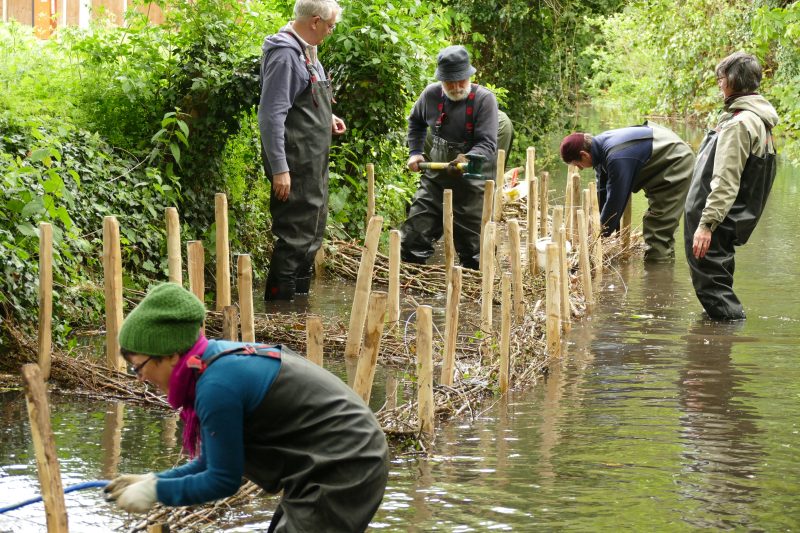
The Friends of the Westbrook and Stonebridge Pond are a local group that meets monthly to maintain and protect this valuable chalk stream
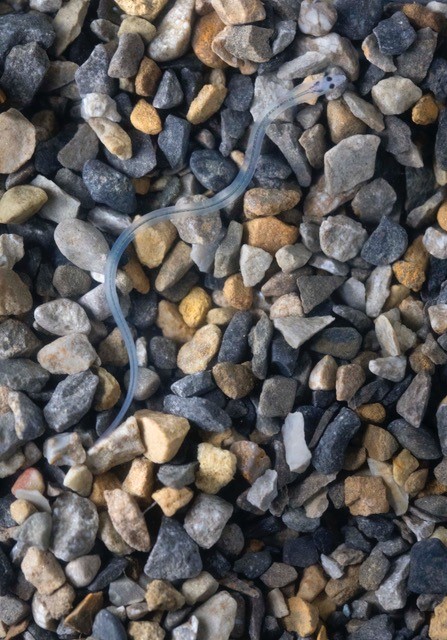
Glass tailed eel just arrived in Faversham Creek from the Sargasso Sea
and as a trustee of the Faversham Society. ‘Both are good ways to get involved with local issues.’ Read his fascinating Faversham Life article on eels.
After 30 years of working for the WCS, Matthew became Director of Conservation at the Zoological Society of London overseeing Field Programmes in more than 50 countries including India, Nepal, Cameroon, Indonesia and Kenya to protect a wide range of species and habitats.
On his 60th birthday in 2018 he decided that he needed a change and set himself up as an independent consultant.
Last year he became chair of the Durrell Wildlife Conservation Trust, having been a board member since 2021. He first became aware of the trust whilst he was in Madagascar. The Trust was founded by Gerald Durrell, author of My Family and Other Animals in Jersey in 1959. Its mission is ‘Saving Species from Extinction’. Since 2017, the trust has had a ‘Rewild our World’ strategy. As part of this initiative, the trust has been given a 100-year lease on the 7,500 hectare Dalnacardoch estate in Scotland in the Cairngorms National Park in Perthshire between Blair Atholl and Dalwhinnie. The aim is to restore the habitats such as peatlands and native woodlands which are very degraded. They are also hoping to reintroduce threatened species such as the capercaillie. It is an exciting venture.
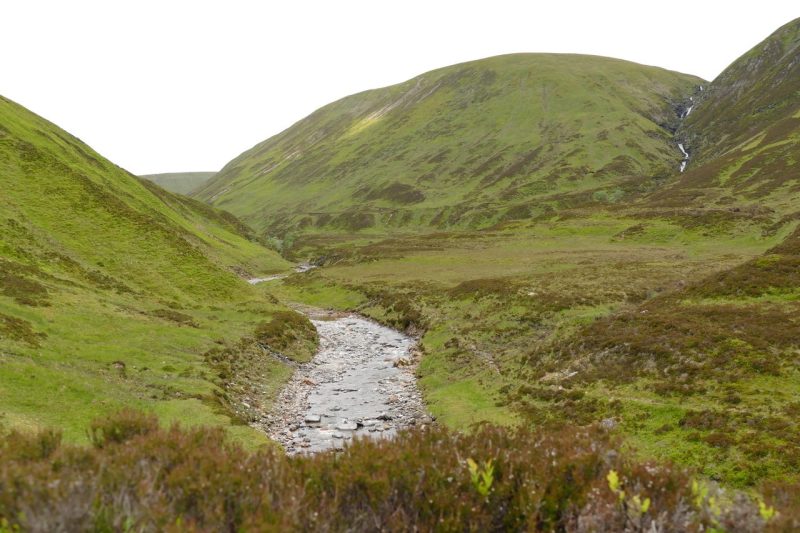
Dalnacardoch Estate, Cairngorms National Park
During his long career, Matthew has seen a huge transformation in wildlife conservation. ‘When I began, there weren’t many people working in the profession and it still had a whiff of colonialism overtones – we were seen as going into countries telling them what to do’. There has been a sea change in attitude. Ecosystems, rewilding, biodiversity, natural habitats are all now household terms.
Faversham is lucky to count Matthew as one of its distinguished residents.